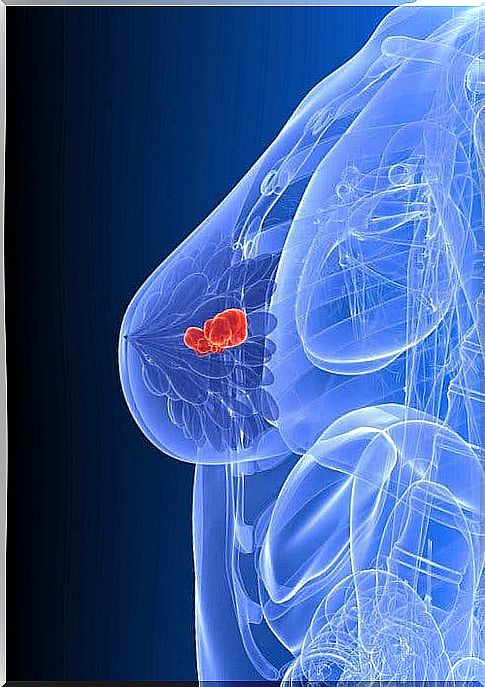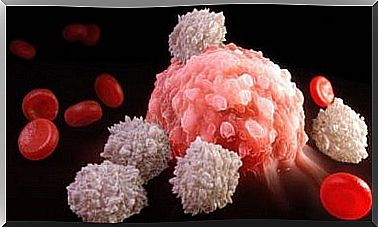BRCA1 And BRCA2 Genes And Breast Cancer

The BRCA1 and BRCA2 genes are a pair of human genes that produce proteins, and their function is to try to suppress tumor growth. The proteins encoded by these two genes help repair damaged DNA. In fact, their role is to ensure the stability of the genetic material in each cell.
Like all genetic material, the BRCA1 and BRCA2 genes can undergo a number of mutations or changes. Thus, the structure can change and become inactive. When this happens, they can no longer codify the protein so that it can synthesize and repair DNA.
As a result, cells are more likely to present the type of genetic changes that can lead to cancer. To be more specific, the mutation of these genes increases the risk of breast and ovarian cancer.
The BRCA1 and BRCA2 genes – triple-negative breast cancer
Triple-negative breast cancer is a type of breast cancer that does not have any of the receptors commonly present in this disease. Thus, there is no overexpression of the progesterone receptors, estrogen receptors and HER2 proteins. This form of cancer is today one of the worst prognoses because chemotherapy is the only treatment.
Triple-negative breast cancer accounts for approximately 12-17% of all breast cancer cases. It spreads rapidly and has a high capacity to cause metastasis. This, as well as how difficult it is to treat, is what gives it a poor prognosis.
One of the most common molecular events in these tumors is changes in BRCA protein function. More than 8% of breast cancer patients with a hereditary BRCA1 mutation have triple-negative breast cancer. In addition, estimates indicate that approximately 15% of patients with ovarian cancer and 5% of patients suffering from breast, pancreatic or prostate cancer have inherited BRCA1 or BRCA2 gene mutations.

Treatment of triple-negative cancer with mutation in the BRCA1 and BRCA2 genes
In December 2014, applications for the marketing of olaparib in monotherapy for the treatment of advanced ovarian cancer with mutation in these genes were authorized. From these results, researchers analyzed the effect this drug could have on treating advanced breast cancer in previously treated patients with mutations in the BRCA1 and BRCA2 genes.
Using the maximum tolerated dose of olaparib (400 milligrams every 12 hours, in the form of capsules), researchers observed an objective response rate of 54% in patients with triple-negative breast cancer. What this hopefully means is that 7 out of every 13 patients had a good reaction.
Other changes that affect the BRCA protein
In addition to the mutations of the mentioned genes, there are other changes that may be responsible for the abnormal function of the BRCA protein. One of them is methylation found in these genes. This means that the promoter of these genes is given a methyl chemical group, CH 3 .
(The promoter of a gene is a region of DNA that controls the initiation of the transcription of a certain part. More simply explained, it is the part of the DNA that initiates the production of a type of protein through RNA. )
Due to their methylation, these genes cannot synthesize the protein responsible for suppressing tumor growth. Researchers observed methylation of BRCA1 and BRCA2 gene promoters in several malignant tumors :
- 5-20% in ovarian cancer
- 50% in gastric cancer
- 29-59% in breast cancer

Conclusion
The BRCA1 and BRCA2 genes play an important role in breast cancer. A high percentage of breast cancer patients with changes in these genes have a triple-negative form. They have it whether it is due to a mutation or methylation. Unfortunately, their prognosis is worse because there are still only limited amounts of treatments.
It is very important to continue the research in order to develop new treatment options, as well as to continue to develop the medicine for this disease. The genetic aspect of breast cancer is a hopeful area, but there is still a long way to go.
Thank you for reading this article.









